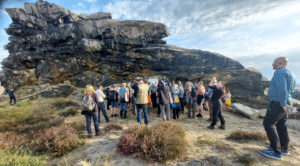INQUA 2405 my: PALeo constraints on SEA level rise (PALSEA_next)
The PALSEA_next project aims to better define observational constraints on past sea-level change and improve our understanding of ice-sheet responses to rapid climate change.
Abstract
The goal of PALSEA-next is to advance our understanding of the magnitudes, rates, and processes of past sea-level change. This improved understanding will allow us to inform predictions of future ice sheet, sea level and coastline evolution, as well as elucidate the response of past societies to sea-level change. The PALSEA community is by nature interdisciplinary and brings together researchers from the proxy-reconstruction to the geophysical process modeling ends of the geoscience spectrum. The role PALSEA project is in bridging these different disciplines to answer shared research questions. PALSEA-next will specifically broaden this research focus to the coastal and marine archaeology community.
Some of these research questions are:
1) What are the climatic and geophysical drivers of ice sheet change on centennial to millennial timescales?
2) How does global or regional-scale ice volume change influence global mean to relative sea level? What rates of change are possible?
3) How does ice sheet and ocean mass change drive solid Earth response?
4) How does sea-level change drive coastline evolution and human society over multidecadal, centennial and millennial timescales?
5) How does quantitative past sea-level data improve future projections?

Objectives
- Improving model-data comparisons by identifying key regions for targeted data collection.
- Producing a comprehensive global relative sea-level dataset by applying improved interpretive frameworks to existing data.
- Modeling of the processes involved in rapid ice sheet collapse and its solid earth response.
- Investigating coastline response to sea-level change by studying submerged landscapes and archaeological records.
Project leaders:
- Juliet Sefton, University of Melbourne, Australia
- Tamara Pico, University of California Santa Cruz, USA
- Matteo Vacchi, University of Pisa, Italy
- Roger Creel, Woods Hole Oceanographic Institution, USA
- Holly Han, Jet Propulsion Laboratory/Caltech, USA
Activities Scheduled
The next meeting will be organized in Venice (Italy) the next 18-21 June 2025: “Warmer coasts in a warming World: Predictions, processes, and proxies, from past to present. https://maps.app.goo.gl/YrauVojMmeUtKtwn6
In our meeting, we underscore our collective responsibility to address the pressing environmental and climatic challenges facing our world today. By bringing together diverse perspectives, innovative ideas, and cutting-edge research, we aim to foster meaningful dialogue and drive tangible progress across a spectrum of critical issues.



